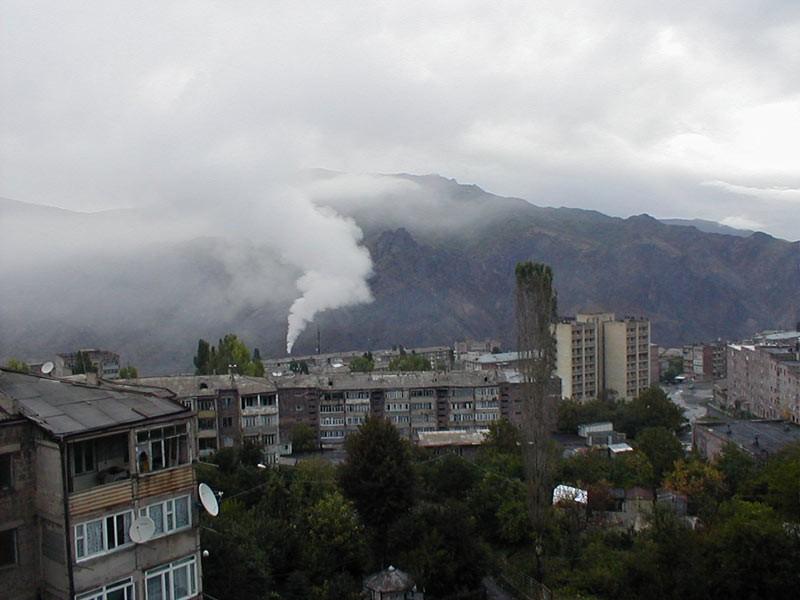
I Want to Have Healthy Grandchildren
21-year old Siramarg Mkhitaryan, a resident of the Sanahin district of Alaverdi, had her 6-month pregnancy terminated at the city's maternity hospital in October. An ultrasound examination had earlier revealed that the fetus was not viable; it suffered from a congenital defect and would have been born without a brain. Amalya Azatyan, director of the Alaverdi Maternity Hospital, said that this was the third case of necessary abortion this year. Cases this year have included anencephaly (anatomical absence of the brain), hydrocephaly (accumulation of water in the cerebral membranes) and spina bifida, which are all severe and incurable defects.
In 2004, seven cases in which children had congenital defects were registered at the Alaverdi maternity hospital. This year, there have been seven cases in only nine months, and only two of the children have been considered viable. In the past five years, there have been a total of 37 cases of congenital defects at the Alaverdi Maternity Hospital.
Azatyan is convinced that these figures are on the rise in Alaverdi. "I don't mean mild defects, which are registered all, the time. This year, the increase in life-threatening defects is palpable," she said and added that statistical data from Alaverdi often surprise people at the Ministry of Health. "The Ministry is convinced as well that we have a higher rate of occurrence compared to other places, but the rise in these figures this year is especially remarkable." Azatyan also insisted that the severity of the defects was also growing worse. The diseases mentioned above lead to various kinds of mental or physical handicap. If born, such children often have short lives or are never able to walk.
Azatyan noted that such defects often occur if one of the parents is a drug addict or alcoholic, if a woman falls ill with influenza during the first half of her pregnancy or suffers from stress, for hereditary or social reasons, and because of the presence of toxic chemicals in food. "One of the reasons is ecological, we cannot rule that out in our cases here either," the director of the maternity hospital said.
Siramarg Mkhitaryan lives with her husband and his parents in Sanahin, a rural area of the city. They have a small wood processing business, and they keep bees, raise animals, and farm as well. The family say they live well. Siramarg's husband has never used drugs. There are no issues of stress either. Neighbors call them a model family. They have a healthy 2-year old daughter and claim to have no hereditary diseases in their family. All of this makes the most common causes of congenital defects seem unlikely. Siramarg's relatives attributed the cause to air pollution in Alaverdi. Her father-in-law, Karlen Ekoyan, says the ecological situation in the city had reached catastrophic proportions. He was convinced that such congenital defects would continue to increase in Alaverdi's future generations. "How long will the factory administration continue to deceive us? How long must we continue to breathe polluted air? How long should we be forced to bear our children's misfortune? I want to have healthy grandchildren," Ekoyan said.
According to data from the Ministry of Ecology Center for Monitoring Atmospheric Pollution, the density of dust particles in the air in Alaverdi was 1.3 times higher than what is safe in July and the level of sulphur dioxide was 9.6 times higher than the normal level.
 Videos
Videos Photos
Photos




Write a comment